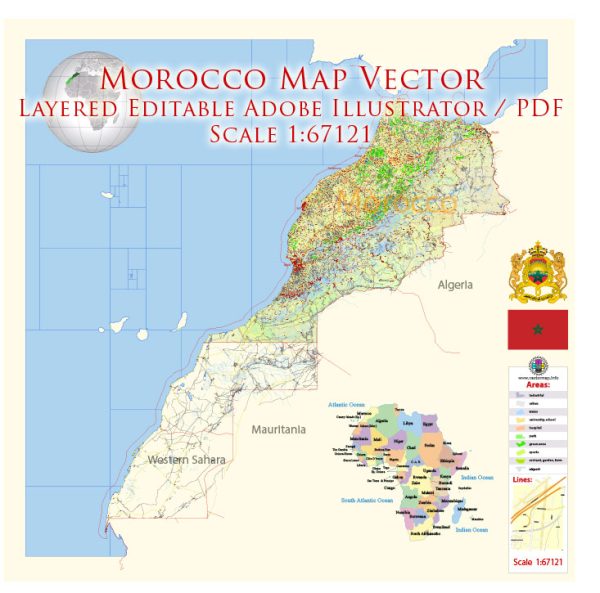Morocco, located in North Africa, has a rich and diverse history that spans thousands of years. Its history is marked by various empires, dynasties, and cultural influences. Here is a brief description of Morocco’s history:
- Ancient Morocco:
- Early history: The region that is now Morocco has a history dating back to ancient times. It was inhabited by indigenous Berber tribes, with some settlements established as early as 2000 BC.
- Phoenician and Roman Periods:
- Phoenician and Carthaginian influence: The Phoenicians and later the Carthaginians established trading outposts on the Moroccan coast.
- Roman province: Morocco became part of the Roman Empire and was known as “Mauretania Tingitana” in the 1st century BC. Roman ruins, such as Volubilis, can still be visited in modern-day Morocco.
- Arab Conquest:
- In the 7th century AD, Arab armies began to conquer the region, spreading Islam and Arabic culture.
- The Berber Dynasties:
- Idrisid Dynasty: The Idrisid dynasty, founded in the late 8th century, established the city of Fez as its capital and played a crucial role in spreading Islam in the region.
- Almoravid and Almohad Empires: These Berber empires dominated the western Mediterranean and parts of North Africa in the 11th and 12th centuries, contributing to the development of Moroccan culture.
- The Marinid and Saadi Dynasties:
- The Marinid Dynasty and the Saadi Dynasty ruled during the late medieval period, with cities like Marrakech and Fes serving as centers of culture and learning.
- The Rise of the Alawite Dynasty:
- The Alawite Dynasty came to power in the 17th century and continues to rule Morocco to this day. The current monarch, as of my last knowledge update in 2021, is King Mohammed VI.
- European Colonialism:
- In the 19th and early 20th centuries, Morocco faced European colonialism, with France and Spain becoming colonial powers in different regions of the country.
- Independence and Modern History:
- Morocco regained its independence from France and Spain in 1956. The country has since developed into a constitutional monarchy.
- Contemporary Morocco:
- Morocco is known for its diverse culture, blending Berber, Arab, and European influences. It has a thriving tourism industry and a growing economy.
- The Western Sahara conflict has been a long-standing issue in Moroccan politics, with ongoing disputes over the territory.
Morocco’s history is marked by its cultural diversity, vibrant traditions, and the legacy of its ancient civilizations. It remains a bridge between Africa and Europe and plays a significant role in the region’s politics and culture.


 Author: Kirill Shrayber, Ph.D. FRGS
Author: Kirill Shrayber, Ph.D. FRGS